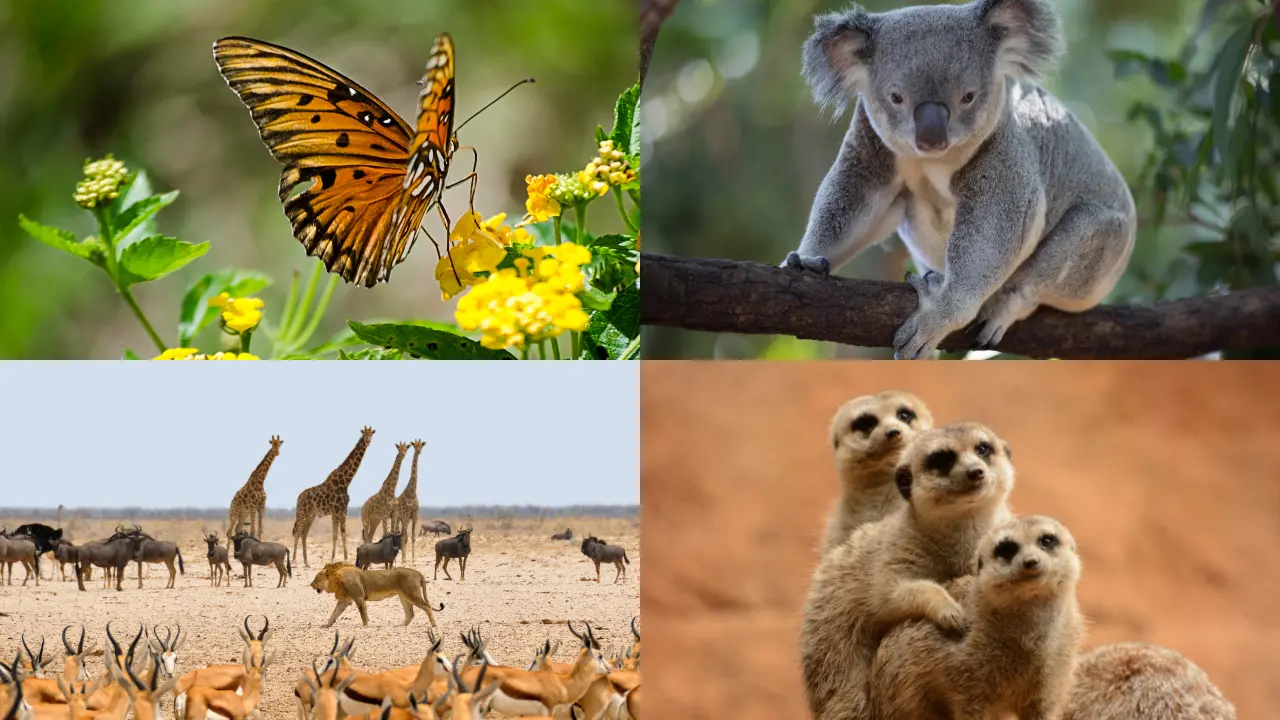The animal kingdom is a treasure trove of astonishing wonders, filled with captivating creatures that roam the Earth’s vast landscapes. Animals, both big and small, have always captivated our imagination and sparked our curiosity.
In this article, we delve deep into the fascinating world of animals, shedding light on their diverse habitats, peculiar behaviors, and the importance of wildlife conservation. Prepare to embark on an extraordinary journey through the wilderness as we uncover the secrets and marvels of the animal kingdom.
Animals: Nature’s Masterpieces
Animals represent an incredible variety of life forms, each uniquely adapted to survive and thrive in their specific environments. From the towering elephants of the African savannah to the tiny tree frogs hidden in rainforest canopies, the animal kingdom encompasses an astonishing array of species. Let’s take a closer look at the many captivating aspects of animals:
1. Animal Adaptations: Thriving in Challenging Environments
Animals have evolved an extraordinary array of adaptations to survive in their habitats. Whether it’s the camouflage of a chameleon, the streamlined body of a dolphin, or the sharp claws of a tiger, these adaptations play a crucial role in an animal’s ability to find food, evade predators, and reproduce successfully.
2. Animal Communication: Conversations Beyond Words
While humans rely on spoken and written language to communicate, animals have developed a diverse range of communication methods. From the mesmerizing songs of birds to the intricate dances of bees, animals utilize a wide array of visual, auditory, and olfactory signals to convey messages within their social groups.
3. Animal Intelligence: Minds at Work
Animals exhibit remarkable intelligence in various forms. Some, like the highly social dolphins and elephants, display complex social structures and intricate communication systems. Others, such as primates and certain bird species, showcase problem-solving abilities that challenge our understanding of animal cognition.
4. Animal Migration: Epic Journeys Across the Globe
Migration is a phenomenon observed in numerous animal species, showcasing their incredible navigational skills and adaptability. From the monarch butterflies’ awe-inspiring journey spanning thousands of miles to the humpback whales’ annual pilgrimage, animals undertake remarkable migrations, often driven by the pursuit of favorable breeding or feeding grounds.
5. Animal Parenting: Nurturing the Next Generation
Animal parenting takes on a multitude of forms, each with its unique strategies and nurturing behaviors. From the dedicated care provided by wolf packs to the meticulous egg incubation of penguins, the bond between parent and offspring in the animal kingdom is a testament to the instinctual drive to ensure the survival of future generations.
6. Animal Senses: Sensational Perceptions
Animals possess a remarkable array of sensory abilities, allowing them to perceive the world in ways unimaginable to humans. From the echolocation of bats to the heat-sensing capabilities of snakes, animals have honed their senses to navigate their environments, locate prey, and communicate effectively.
FAQs
Q1: Why is wildlife conservation important? Wildlife conservation is crucial for maintaining ecological balance, preserving biodiversity, and safeguarding fragile ecosystems. By protecting animals and their habitats, we ensure the survival of numerous species and contribute to the well-being of our planet.
Q2: How can I contribute to wildlife conservation efforts? You can make a difference by supporting conservation organizations, reducing your ecological footprint, and spreading awareness about the importance of wildlife conservation. Additionally, volunteering for wildlife rehabilitation centers
Read More: Most Popular Pearl Dog Collars In 2022

